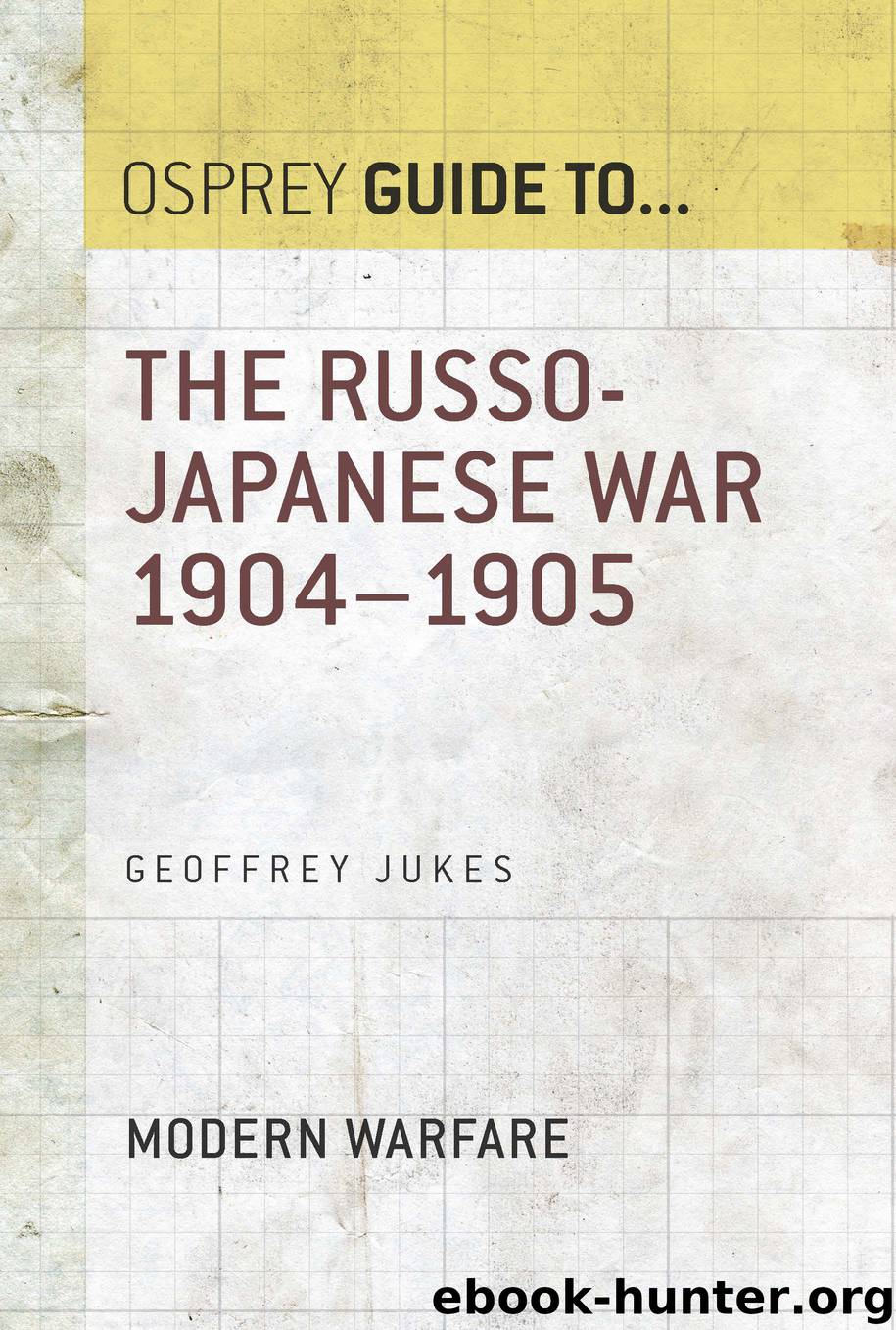The Russo-Japanese War 1904–1905 by Geoffrey Jukes

Author:Geoffrey Jukes
Language: eng
Format: epub
Tags: The Russo-Japanese War 1904–1905
ISBN: 9781472810038
Publisher: Bloomsbury Publishing
The winter lull
Although the Japanese could reasonably claim to have won at Sha-Ho, they had come closer to defeat than in any of the previous battles and the state of their ammunition and manpower precluded any immediate attempt to exploit their success. Like the Russians, they settled in for the winter.
Both sides arranged their winter quarters mainly at the expense of the local Chinese, but they differed greatly in the manner of their exploitation. In the area between the Sha and Hun rivers, the Russians completely demolished all the Chinese villages, taking the timber from them to provide roofs and walls for their underground bunkers, cutting down the fruit trees and bushes for firewood, requisitioning all the poultry, livestock and grain, and making at least 90,000 Chinese penniless refugees in their own country. Between the Hun river and Mukden they left the villages standing, but then regularly raided them for food, drink, fuel or sex. In the cities drunkenness abounded, venereal diseases were common enough, especially among officers, for Kuropatkin to issue diatribes about them, and smallpox was rampant.
The Japanese too inflicted hardships on the Chinese, requisitioning their homes and obliging them to double-up in houses not requisitioned, but the houses were not destroyed. Army regulations about cleanliness and the Japanese liking for hot baths usually led to the construction of simple bath-houses and to attempts to improve drainage, sanitation and roads. In the larger cities Japanese officers were appointed as civil governors, and worked closely with the local Chinese administration. Their main function was to protect the soldiers’ health by improving sanitation and ensuring daily checks of brothels by army medical officers. In at least one city, Mukden, they provided a free hospital for Chinese civilians, and in several cities and many villages troops were used to improve roads. Japanese troops were in any case less given to leaving their billets when off duty, their rations more adequate and more regularly provided than in the Russian Army, and they were accustomed to cooking them in their billets; so their presence was less obvious and therefore less irritating to the locals than that of Russian troops. The Chinese did not exactly welcome either foreign presence, but the Japanese gave them less to complain of, and this paid off in a greater readiness among the Chinese to provide information about Russian movements and actions.
Download
This site does not store any files on its server. We only index and link to content provided by other sites. Please contact the content providers to delete copyright contents if any and email us, we'll remove relevant links or contents immediately.
| Africa | Americas |
| Arctic & Antarctica | Asia |
| Australia & Oceania | Europe |
| Middle East | Russia |
| United States | World |
| Ancient Civilizations | Military |
| Historical Study & Educational Resources |
The Radium Girls by Kate Moore(12018)
100 Deadly Skills by Clint Emerson(4921)
Rise and Kill First by Ronen Bergman(4779)
The Templars by Dan Jones(4682)
The Doomsday Machine by Daniel Ellsberg(4484)
The Rape of Nanking by Iris Chang(4203)
Killing England by Bill O'Reilly(3995)
Stalin by Stephen Kotkin(3957)
Hitler in Los Angeles by Steven J. Ross(3942)
12 Strong by Doug Stanton(3541)
Hitler's Monsters by Eric Kurlander(3328)
Blood and Sand by Alex Von Tunzelmann(3194)
The Code Book by Simon Singh(3177)
Darkest Hour by Anthony McCarten(3119)
The Art of War Visualized by Jessica Hagy(3000)
Hitler's Flying Saucers: A Guide to German Flying Discs of the Second World War by Stevens Henry(2744)
Babylon's Ark by Lawrence Anthony(2671)
The Second World Wars by Victor Davis Hanson(2521)
Tobruk by Peter Fitzsimons(2507)
